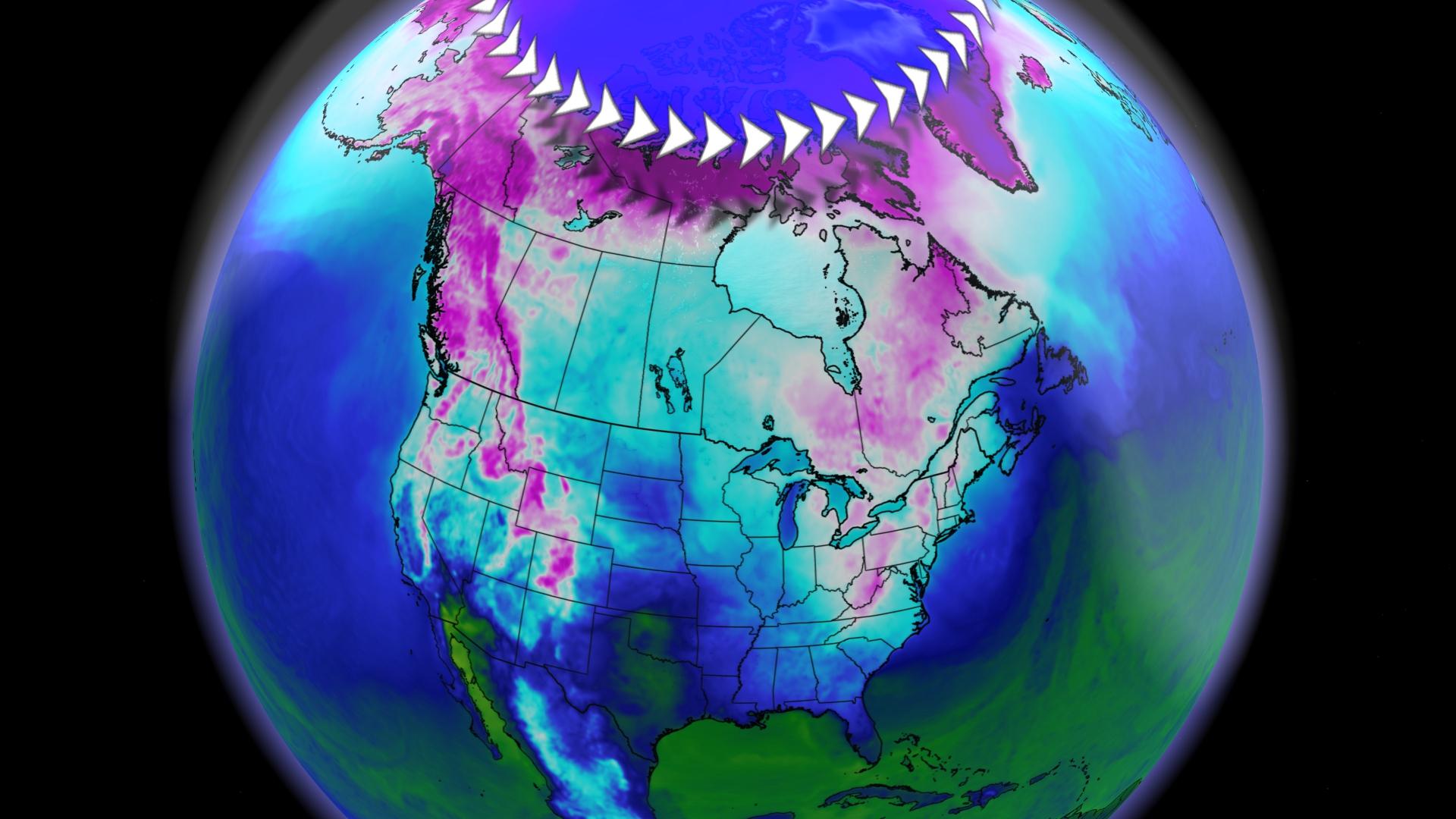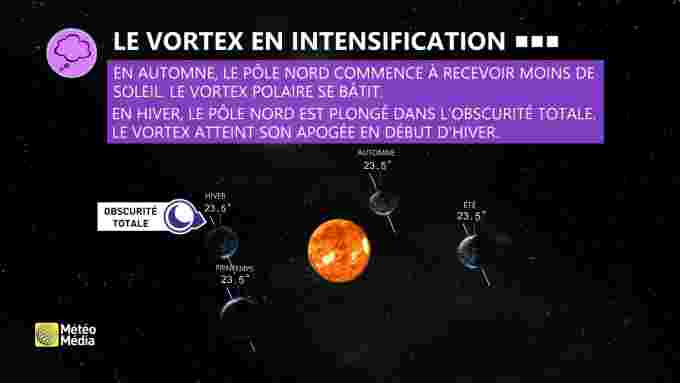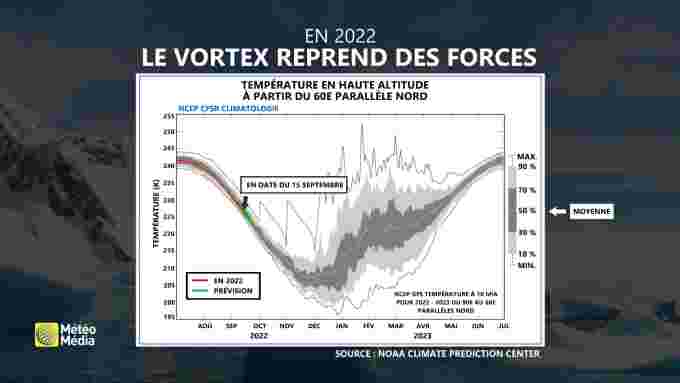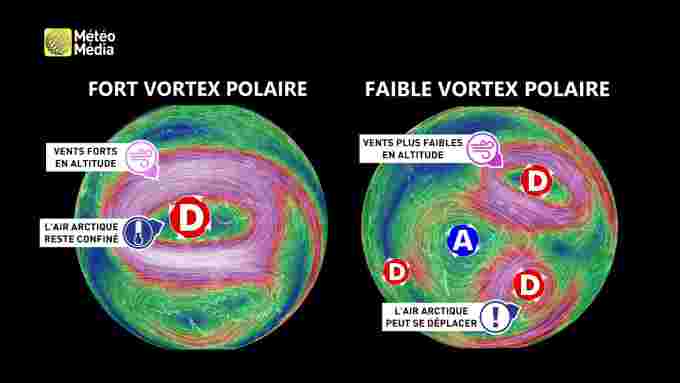In collaboration with meteorologist Kevin Cloutier
The polar vortex is a major player in the cold season in the northern hemisphere. Although it is present year-round, it wanes during the summer. However, here he prepares the table for the winter.
good to know – The polar vortex is a region of low pressure located in the Northern Hemisphere, which extends from the surface to the stratosphere. It is a large hurricane, covering the entire North Pole of the globe, which is the result of a large difference in solar radiation between the equator and the North Pole. It generally contains the coldest air mass in the hemisphere.
Take power now
The decrease in the influence of the sun in the northern regions, especially in the fall, allows it to effectively restore the lead. During September and October, the polar vortex is gaining strength — and fast.
There are two elements to consider: its temperature and pressure. Its cooling accelerates, deprived of the heat of the solar star. Moreover, its size and impact increases as pressure decreases in the core of the polar vortex, in preparation for the return of the cold season.
It usually reaches its peak in November, when it is at its strongest. Thus, this capture is taking place at this very moment, several kilometers above our heads.
However, the exact behavior of the vortex still holds many mysteries. It is difficult to accurately predict its development over the next few months.
Remember, La Niña is still anchored in the Pacific Ocean for the third winter in a row. It could have an effect on the behavior of the polar vortex. In any case, winter will be shaped by these two important players.
Some possibilities
One thing is for sure: the polar vortex has a direct impact on regions in the Northern Hemisphere – of which Quebec is clearly a part. If its effect can be felt during the fall, this is the winter when the polar vortex puts all its cards on the table.
In short, there are two main potential trends: a strong vortex or a weak vortex.
vortex stronger It generally means that the cooler air remains confined to the Arctic regions. So it is unlikely to dive deep into North America and Europe, which limits cold escapes. It can be considered as a shield that blocks cold air. In this case, winter is the least trying towards our latitudes.
However, the opposite is also possible. Sudden stratospheric warming can still occur along the way. If this happens, the polar vortex will lose its feathers. weak vortex It has more difficulty containing the Arctic mass. Hence colds become more frequent and more important in North America and Europe. Worse yet: Such a context could lead to atmospheric clogging over Greenland, encouraging extended periods of ice in Quebec.
SEE ALSO: Winter III La Niña is coming

“Extreme twitteraholic. Passionate travel nerd. Hardcore zombie trailblazer. Web fanatic. Evil bacon geek.”





